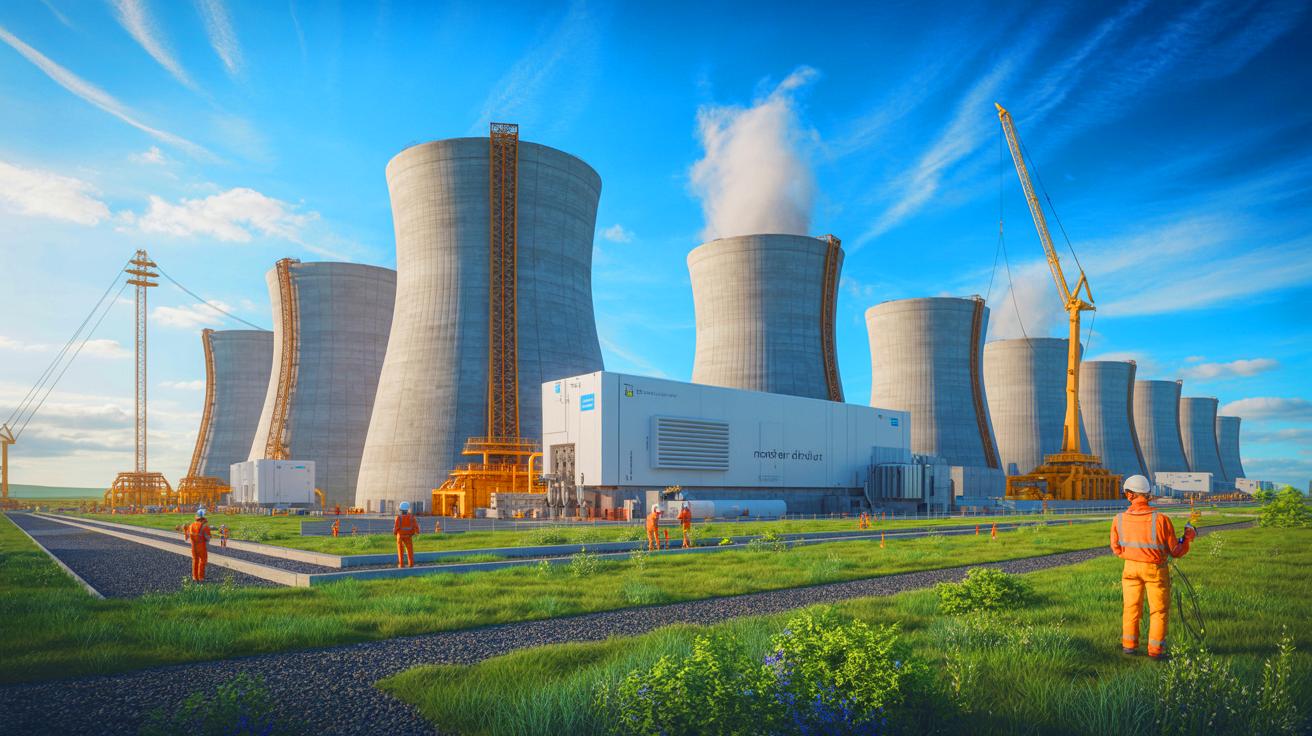- 🚀 The ENLIGHT program focuses on transforming the UK’s nuclear graphite supply chain and waste management.
- 🌍 Aims to support the UK’s net-zero emissions goal by 2050 through sustainable nuclear energy advancements.
- 🏫 Collaborative effort involves leading universities like the University of Manchester, Oxford, and Loughborough.
- 💡 Program includes training the next generation of graphite scientists and engineers for clean energy innovation.
As the United Kingdom continues its ambitious transition towards a sustainable energy future, the role of nuclear power cannot be overstated. A key component in this transition is the ENLIGHT program, spearheaded by the University of Manchester, which seeks to revolutionize the lifecycle of graphite in nuclear reactors. With a significant grant from the UK Research and Innovation’s Engineering and Physical Sciences Research Council, this initiative aims to address the dual challenges of ensuring a sustainable supply of nuclear graphite and managing the growing stockpile of irradiated graphite waste. This innovative approach not only promises to strengthen the UK’s energy security but also supports its commitment to achieving net-zero emissions by 2050.
ENLIGHT Program: Graphite for Advanced Modular Reactors
The ENLIGHT program is a cornerstone of the UK’s strategy to meet its net-zero targets by 2050. By focusing on the development of advanced modular reactors, the program underscores the critical role of graphite in next-generation nuclear technology. Graphite, despite accounting for a significant portion of reactor build costs, remains an imported commodity for the UK, highlighting the need for a robust domestic supply chain. This program seeks to address this by developing sustainable sources of nuclear-grade graphite.
Furthermore, the UK faces the challenge of managing over 100,000 tons of irradiated graphite waste, a figure set to increase as older reactors are decommissioned. ENLIGHT aims to recycle this waste and develop new graphite materials capable of withstanding the extreme conditions within reactors, thereby extending their lifespan and efficiency. The innovative approach of recycling irradiated graphite not only addresses waste management issues but also transforms a liability into a valuable asset for the UK nuclear industry.
Cost Savings and University Collaborations
The potential financial benefits of the ENLIGHT program are substantial. By reestablishing a domestic supply chain for nuclear graphite and finding ways to recycle existing waste, the UK could save up to $2.69 billion in future waste management costs. As highlighted by Professor Abbie Jones, the project’s principal investigator, nuclear graphite is vital for the safety and efficiency of reactors, and the program aims to transform a growing waste stream into a valuable resource.
The collaborative efforts of multiple universities further bolster the program’s potential. While the University of Manchester leads the initiative, Oxford University focuses on graphite selection and design, Loughborough University explores the behavior of nuclear graphite under extreme conditions through advanced computational modeling, and the University of Plymouth assesses porous materials critical for repurposing graphite. This multi-institutional collaboration ensures a comprehensive approach to solving the challenges associated with nuclear graphite.
The Role of Nuclear Graphite in Energy Security
Graphite is not only a critical material for reactor construction but also plays a pivotal role in the UK’s energy security. The current reliance on imported graphite poses a vulnerability, especially as global supply chains face increasing uncertainty. By developing a homegrown supply chain, the ENLIGHT program strengthens the UK’s position in the global nuclear industry, reducing dependency on foreign materials.
Moreover, the program aligns with the UK’s broader energy policy objectives, which include reducing carbon emissions and transitioning to clean energy sources. By securing a sustainable graphite supply and advancing recycling technologies, the UK can enhance the resilience and sustainability of its nuclear energy sector, contributing to national and global efforts to mitigate climate change.
Training the Next Generation of Experts
In addition to technological advancements, the ENLIGHT program is committed to developing a skilled workforce capable of driving the UK’s clean energy future. Training the next generation of graphite scientists and engineers is a key component of the initiative, ensuring that the country has the expertise needed to maintain and advance its nuclear capabilities.
The involvement of top universities in the program provides an unparalleled opportunity for students and researchers to engage with cutting-edge nuclear technology. This educational aspect not only supports the UK’s energy goals but also fosters innovation and leadership in the field of nuclear science. As the demand for clean energy solutions grows, these trained professionals will be instrumental in shaping the future of the industry.
The ENLIGHT program represents a significant step forward in the UK’s journey towards sustainable nuclear energy. By addressing the challenges of graphite supply and waste management, this initiative not only supports the country’s net-zero ambitions but also strengthens its energy security. As the program progresses, it raises important questions about the future of nuclear energy and the role of innovation in achieving a sustainable energy landscape. How will advancements like those pioneered by ENLIGHT shape the global energy future?
This article is based on verified sources and supported by editorial technologies.
Did you like it? 4.4/5 (24)
